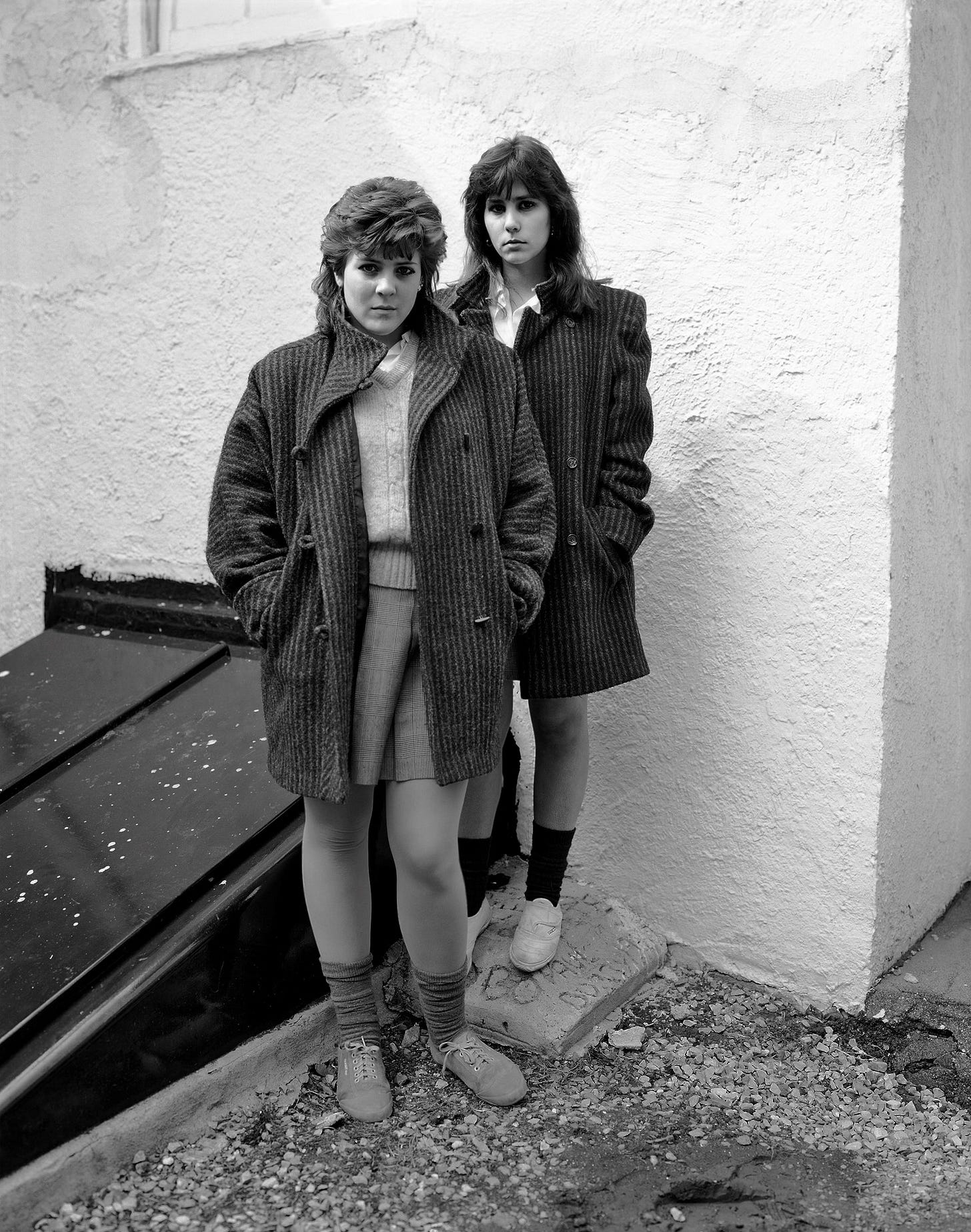Are you happy? I remember one time, I must have been about seventeen, being asked this question. The person asking was an adult, and their question… Well, it felt less like a question and more like an accusation or a demand for reassurance, or perhaps a reprimand of some oblique kind.
Was I? Happy? Sometimes: with friends, with whom I felt hilarious, thrilled, excited, adventurous and sometimes real. Less so with adults, around whom I was withdrawn and wary.
I knew there was a right, or at least placatory answer to the question that had been launched at me, and had made me feel as if I was sitting in an interrogation room, light swinging. But instead, I answered honestly. ‘I’m not sure if I know what happiness is’. This answer was probably taken as being obtuse or difficult. But I would give the same answer today. The idea that a person either is, or is not, happy, seemed bizarre to me then, and still does.
Photograph by Andrea Modica
The word ‘happiness’ has its roots in the Scandanvian happ, meaning luck or chance (it’s also the root of the word happenstance). Happiness is a word which, etymologically at least, speaks of the accidental and lawless, the improvised and fleeting. But this is not how the word is often used today
A few months ago, I took part in a discussion on the BBC Radio 4 programme Free Thinking, the day after the World Happiness Index was published. The World Happiness Index is one of those mechanisms that encourages to think of happiness as a measurable state, rather than something that we move through and moves through us. It equates ‘happiness’ not with pleasure, joy or exuberance, but with the milder ‘life satisfaction’. If you’re interested, the UK, where I live, ranked twenty; Finland, where I happen to be travelling to as I write this, ranked number one.
I can call to mind any number of criticisms of the World Happiness Index: after all, it’s an extremely blunt tool to apply to very complex emotional and social phenomena. One study from Lund University Sweden interrogated how its questions were phrased. At the moment, respondents are asked to judge how close they are to living their ‘best possible life.’ The study found that this question seemed to encourage people to think in terms of wealth and power. When respondents were asked instead to say how close they were to living their ‘most harmonious life’, more described themselves as ‘happy’, and the reasons they were not reflected things like poor work-life balance and discriminatory practices. The way we measure happiness, or well-being, may not necessarily be how people define them for themselves.
I am certainly more interested in living a harmonious life than my ‘best’ one, a phrase that makes me panic and question every choice I ever made. And certainly, even decades later, I still don’t like to think too hard about the question ‘am I happy?’: as the nineteenth-century philosopher J.S Mill put it ‘ask yourself if you are happy, and you cease to be so’. Another guest on that radio discussion, Becca Voelcker, a lecturer in Fine Art at Goldsmiths, introduced me to Claudia Rankine’s thoughts on ‘happily’, for which I am very grateful. Rankine writes: ‘The noun, happiness, is a static state of some Platonic ideal you know better than to pursue’. Instead, Rankine chooses to speak of happily, with all its ambivalences, contradictions and multitudes. Riding with a friend in a cab through London, she happily enjoys the spectacle of the London Eye, while simultaneously unhappily catches sight of the people sleeping rough in its glittering shadow and thinks the money might have been better spent supporting them. Feelings are never really in a state of rest, and nor can they entirely define us, and yet we live in a world that wants them to be definitive states rather than messy, fleeting feelings.
Happily I sit now, writing this on a plane to Finland (unhappily, the TV screen in the seat before me keeps glitching on and off showing me Terminator: The Sarah Connor Chronicles). I’m going to the University of Tampere to give a talk about the messy intimacies of writing histoires of friendship. I experienced many of these confusions writing my new book Bad Friend: A Century of Revolutionary Friendships, which is out next May. As I wrote of the friendships of women long dead, I found myself navigating new ethical questions that I had not really thought about before in my work as a historian: questions about power and ownership and the claims we make to know another’s intimate feelings. And since I write about the histories of my own friendships in this book too, I also found myself in uncharted waters, as writing about them so often felt like a betrayal of the secret pacts my friends and I had struck up, as if I had seized control of the narrative of our shared world.
Among the histories I wanted to tell in Bad Friend, was the one of my best teenage friend and I, the one with whom I marched around the suburban streets, happily unhappy, and unhappily happy, unable to breathe for laughing one moment, sobbing the next, finding a private world in public space, away from the gaze of the adults who insisted on monitoring our feelings and requiring them to be more palatable and pliable.
Unhappily I haven’t finished writing the talk yet. Happily, I have just written this instead.
Wish me luck!
If you want to come to the talk, it might still be possible to attend online:





